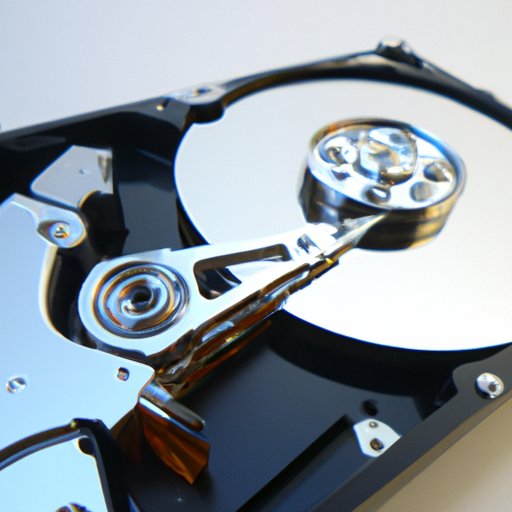Introduction
Do you frequently receive low disk space warnings on your computer? Do you find it hard to locate files and folders due to insufficient space on your computer? Well, you’re not alone. Disk space issues are a common problem among computer users. However, the good news is that there are ways to free up disk space on your computer.
This article aims to provide a comprehensive guide on how to free up disk space on your computer. By following the tips provided here, you can improve your computer’s speed and performance and prevent future disk space issues.
Identify and Remove Large Files
One of the most effective ways to free up disk space on your computer is to identify and remove large files. Large files such as videos, audio files, and high-resolution images can take up a significant amount of disk space. Removing these large files can free up space and improve your computer’s performance.
You can use built-in software or third-party applications to find the largest files on your computer. Many third-party applications are available online that can help you identify large files quickly. Here’s how to do it using built-in software:
- Open File Explorer on your computer.
- Click on “This PC” or “Computer” on the left side of the screen.
- Search for “size:gigantic” in the search bar at the top of the screen. This will display the largest files on your computer.
- Select the files you want to remove and click on “delete.” If you’re not sure which files to delete, you can open them first and see if they’re still necessary.
Clean up the Downloads Folder
The Downloads folder is another area of the computer that can become cluttered over time and take up valuable disk space. This folder often contains files that are no longer needed or that have already been transferred to other devices. Here’s how to clean up the Downloads folder:
- Open File Explorer.
- Click on “This PC” or “Computer.”
- Double-click on the “Downloads” folder.
- Select the files you no longer need and click on “Delete.”
Remove Duplicate Files
Duplicate files can also take up a significant amount of disk space on your computer. Finding and deleting duplicate files can free up space and make it easier to navigate your files and folders.
You can use duplicate finder tools that are available online or do it manually by searching for identical files and deleting them. Here’s how to do it manually:
- Open File Explorer.
- Search for file names or extensions that are duplicated, such as “.doc” or “.jpg.”
- Select the duplicate files and click on “Delete.”
Uninstall Unnecessary Applications
Uninstalling unnecessary applications is critical to having more disk space. Applications that you no longer use can take up a significant amount of disk space and can slow down your computer’s performance. Here’s how to uninstall applications on a Windows computer:
- Open the Start menu.
- Select “Settings.”
- Select “Apps.”
- Select the application you want to uninstall and click on “Uninstall.”
Clear Cache and Temporary Files
Browser caches and temporary files can take up a significant amount of disk space. Clearing these files can free up space and improve your computer’s performance. Here’s how to clear browser caches and temporary files:
- Open your web browser.
- Click on the three-dot icon on the top right corner of the browser window.
- Click on “More Tools.”
- Select “Clear browsing data.”
- Select the data you want to clear, such as cache and cookies.
- Click on “Clear Data.”
Use External Storage
Using external storage devices such as an external hard drive or cloud-based storage is an excellent way to offload files from your computer and free up disk space. Storing files in the cloud also allows you to access them from anywhere using any device.
Disable Hibernation
Hibernation is a feature of Windows that can take up a considerable amount of disk space. Disabling hibernation can free up disk space and improve your computer’s performance. Here’s how to disable hibernation:
- Open the Start menu.
- Type “cmd” in the search bar.
- Right-click on “Command Prompt” and select “Run as administrator.”
- Type “powercfg -h off” and press Enter.
Conclusion
In conclusion, freeing up disk space on your computer is critical to its performance. By identifying and removing large files, cleaning up the Downloads folder, removing duplicate files, uninstalling unnecessary applications, clearing cache and temporary files, using external storage, and disabling hibernation, you can free up disk space on your computer and improve its performance and speed. We hope that following these tips will help you achieve a better computing experience.
